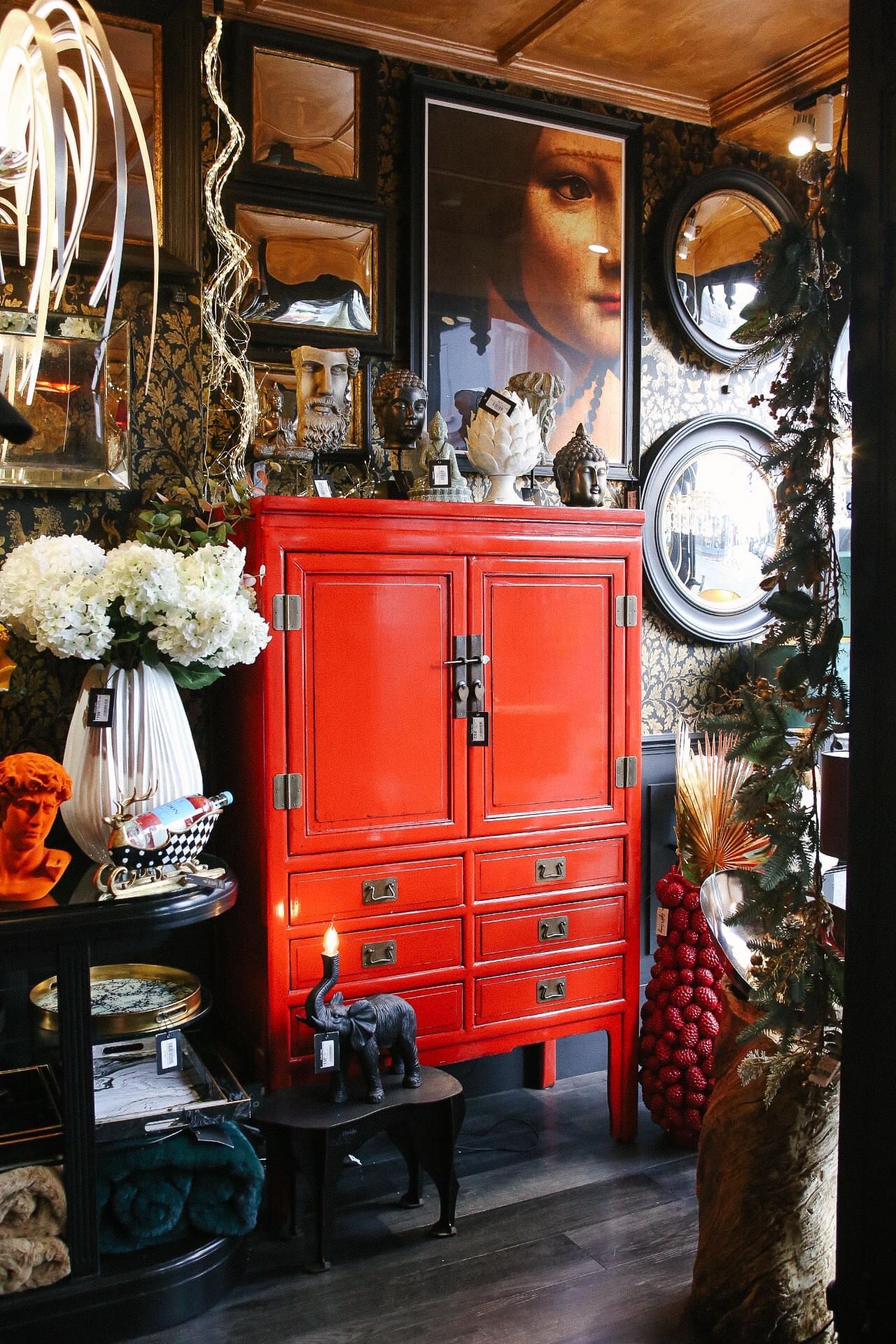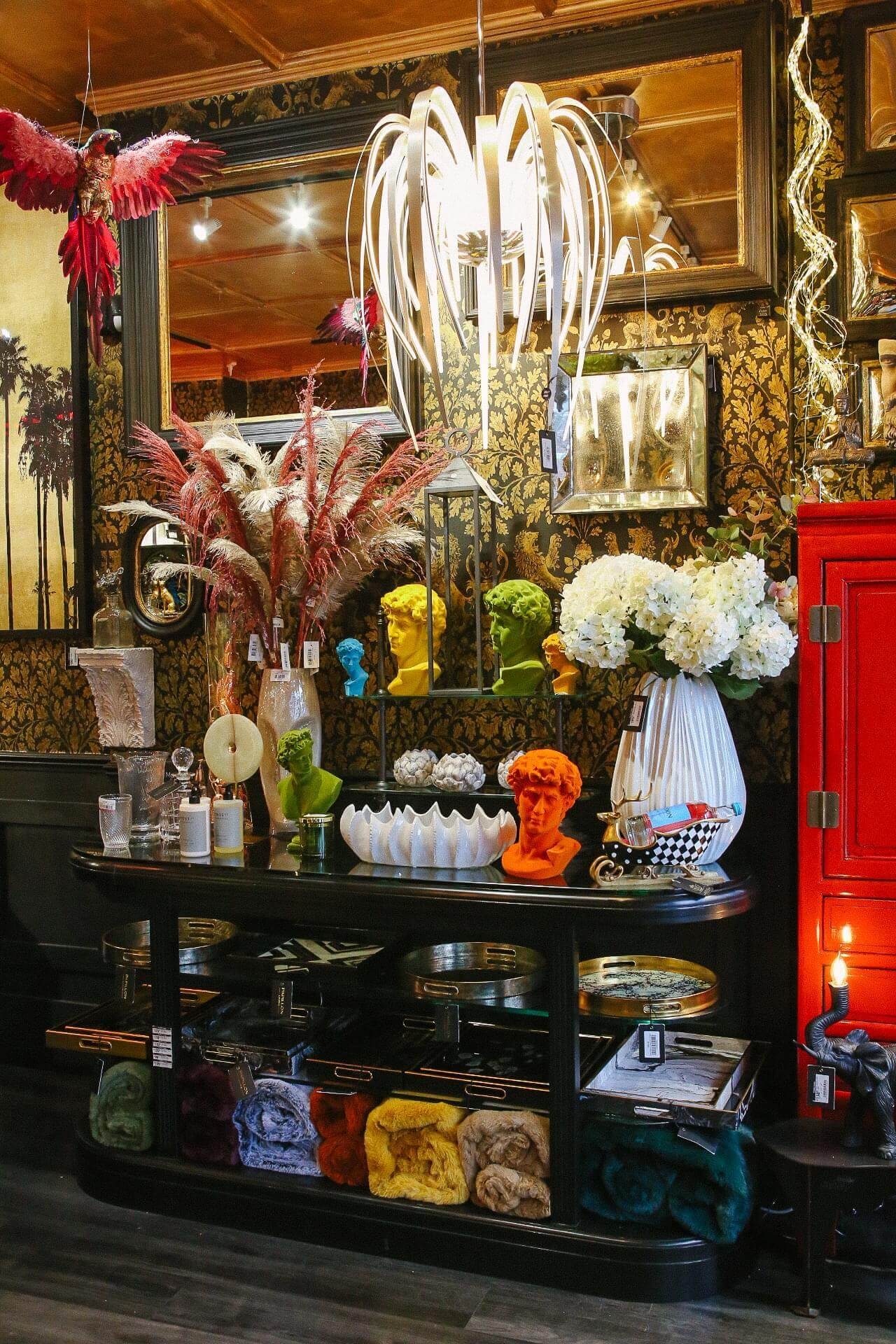Papillon Living: from launch to long haul
Taking the leap
A lot has changed for retailers over the past two decades. Ways of working have evolved and new technologies have entered the market, along with a flurry of fast-paced, agile newcomers.
On the face of it, you'd be forgiven for thinking that a 14-year-old business wouldn't understand what it takes to launch a new shop these days. But a lot can be learned from setting up a business in a tough economic environment – as shown by Papillon Living, an eclectic homeware emporium in Brighton that opened during the last financial crisis.
‘Whether [there's] a recession or not, if your offering is always quality-focused and service-focused, then you'll be successful,’ says Papillon Living's co-founder Stephen Anderson. ‘And it may take some time. But it's one of those learnings to share – to not give up, to not doubt yourself and just stay the course.’
Papillon Living started in 2009 as a side business to an actor's agency that Stephen ran with his partner Andrew Allen. Back then, everyone advised them against opening a retail store and giving up well-paid jobs to take on such a big risk. ‘But sometimes you just have to go with the flow,’ says Stephen, who previously ran a software company. ‘If you really feel your offering is going to be successful, [...] if you have the conviction, if you have the inspiration and the impulse to do something, just follow it through, because you only regret what you don't do.’
‘Just follow it through, because you only regret what you don't do.’

Papillon Living has changed a lot through the years, moving premises twice and even setting up its own manufacturing arm, House of Alchemy, which makes perfumes, candles and diffusers. But business is all about change, and being adaptable means having your ‘fingers on the pulse’ when it comes to the wider economy, Stephen explains.
‘Undoubtedly, there'll be businesses that suffer [during a recession], but you have to constantly evolve and change. It's all about reading what's going on out there, supporting your customers, not being greedy with prices or complacent with products and bringing new products. You're being innovative and constantly offering something different: quality at an affordable price. So, if you can bring those factors into it, then you'll carry on surviving – perhaps on reduced margins, but [it's] far better to be in business on a reduced margin [than] not be in business at all.’

Bringing order to the business
In the early days, both Stephen and Andrew were focused on front-of-house operations, looking after people as they entered the store, buying the right stock and making sure that everything customers interacted with was organized and well-presented. But, behind the scenes, when it came to paperwork and the financials, it was a different story – ‘a bit like the duck on the water, with the legs scrambling underneath,’ Stephen admits.
‘My accountant was forever chasing me for paperwork, doing VAT returns and so on. We got some late-filing penalties from HMRC [the UK's tax office], just because we didn't have paperwork organized or know where it was, scrambling at the last moment and not capturing all the information. So, late to the game, after taking a few years of bruises and knocks, we adopted QuickBooks as a way of bringing some order to our business.’
He continues: ‘That was a lifesaver and a game-changer because it meant that, for once, we actually had information that was accessible – for our accounting firm and for us – and we knew where everything was. What was not so great was realizing that we could have done that much sooner and not had such an expensive process.’
Divide and conquer
For new business owners, Stephen has one crucial bit of advice: focus on what you do best and delegate the tasks you feel less passionate about. In Stephen's case, that was financial reporting. ‘For me, that was always a bit of a chore. I never really enjoyed it. There was always something more pressing to do,’ he says.
‘To be able to have a system in place where you could just press a button and have accurate reporting – that was a godsend. I'd definitely recommend that and bring that in as early as possible. Don't try to do everything yourself.’
For Stephen, one of the most important things in any business is financial control. ‘Know what your paperwork trail is. Whether that's digital or manual, have a handle on it,’ he says. It's not only important from an admin point of view, but it can provide a wealth of useful information. ‘Whether that's finding out what your bestsellers are, getting rid of lines that take a long time to sell or finding you're spending too much on packaging,’ Stephen explains, ‘you can only realize that through financial controls and a software package like QuickBooks to give you that data.’
Having the knowledge to make informed decisions is an important part of running a retail store in today's economic environment. But, sometimes, it's about having the confidence to go with your gut while others are dialing back on risk. And, according to Stephen, there's great opportunity in these moments. ‘Fortune favors the brave,’ he says. ‘If you don't do something when you have the impulse to do it, then you just never do it. If we listened to the naysayers in 2009, we wouldn't be in business today.’

Learn more about how QuickBooks can help you make good decisions from day one.








